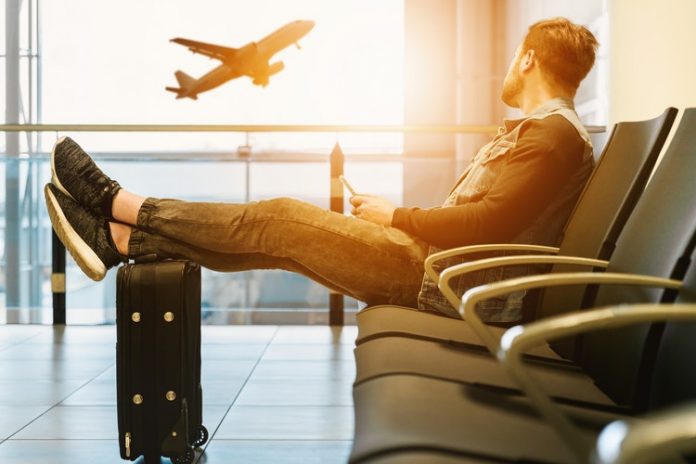
The travel industry has been hit hard by the coronavirus pandemic. Travel restrictions around the world have seen flights ground to a halt, journeys cancelled, and future plans tainted with uncertainty. Travellers are keen to get back out into the world, for leisure and for work, and will be looking towards travel brands to lead the way in terms of advice, support, and reworked CX strategies that make travelling during the pandemic safe and stress-free.
Operating with flexibility, meeting challenges head-on with innovative thinking, and working hard to meet changing customer needs and expectations are all more important than ever for travel brands who want to survive the pandemic. It might feel like a daunting task but it’s certainly not an impossible one. Our tips for delivering both proactive and reactive CX strategies during the pandemic will help travel brands to thrive in the face of Covid-19, whilst ensuring their customers are feeling happy, safe and confident.
Make your comms matter
Travel brands should be prepared to establish themselves as coronavirus experts. Developing a communications plan which pre-empts customer concerns and questions, delivers up-to-date advice and guidance, and welcomes queries and feedback is the best way for brands to showcase their expertise whilst building up customer trust. Travel brands might update their websites with new Q&A sections, publish guides about pre-travel testing for travellers to read before their journey, implement a series of informative emails, or create a Covid-19 task force to specifically handle any pandemic-related questions.
Medicspot representative, Adam Thornhill, says, ‘Travel brands should not presume that their customers have all the information they need before travelling. Guidance and support should be offered across every moment of the customer’s journey, from deciding on a destination through to returning safely to the UK. Travel companies should offer insight, guidance and instruction, from sharing the latest local restrictions of their destinations to signposting customers towards their nearest pre-flight Covid testing centre.’.
Ian Crawford, Brand Manager of online travel retailer, Holiday Hypermarket, says ‘On the one hand, people’s desire to travel and get away has never been greater than now, given the tough year that everyone has endured. However, consumers also need to feel safe and ready to travel before booking their next trip. So, the challenge in our industry is to instil trust and ensure they have a seamless customer experience from the get-go. This starts online for us, where we need to provide our customers with up-to-date information about destinations, travel requirements and their accommodation. Reassurance is key.’.
Be human, be authentic
One good thing to come out of the coronavirus pandemic is the spotlight it has shone on humanity and our need to be kind, caring and compassionate with one another. This need is true for brands too. Customers are more than just transactions and revenue, and should be treated as such. 65% of people will base their future purchases on how well a company responded to the COVID-19 crisis and many customers would stop using brands that have not acted appropriately.
Travel brands should look inwards at their culture, colleagues, and mission and purpose. How can they operate with more authentically, putting their customers and colleagues first in this time of uncertainty? Can they offer help to the community – locally or globally – and how can they lead the charge on being more human and creating meaningful customer relationships that last?
This might look like greater transparency around internal policies and how staff are being supported during the pandemic, or perhaps new ways of working that put customer and colleague safety first can be implemented. Ask customers the genuine question of ‘how are you doing?’ and truly listen to their reply, look for ways to create a sense of community using digital or virtual means, and show that customers matter even when can’t currently spend any money on travel services.
Build empathic customer relationships
Adrian Swinscoe, CX Consultant, says, ‘The effects of the pandemic has shown that an organisation’s relationships with their customers and their ability to deliver great service and experience is dependent on their ability to be empathetic. In 2021, organisations will increasingly get to grips with what that means for them and their customers. That will require them to start thinking holistically about it and start thinking about developing an empathetic musculature for their organisation i.e. what strategy, systems, processes, design, technology, leadership, people and training they need to put in place to make their whole organisation sustainably more empathetic to their customers.’.
CX is an ever-evolving element of business operations that travel brands should always be looking to improve on, but in the face of the pandemic, they need to prioritise it more than ever before. The key to success is for travel brand leaders to put themselves in the shoes of the customer. We are all feeling uncertainty and fear as we try to keep up with the latest guidelines and keep ourselves and our loved ones safe. Think about your own expectations, worries and needs, and use this to inform your CX strategy. At the end of the day, we are all facing coronavirus together so travel brands should be prepared to join in the conversation, look after their customers and colleagues, and play their part in keeping people well-informed and most importantly – safe.











